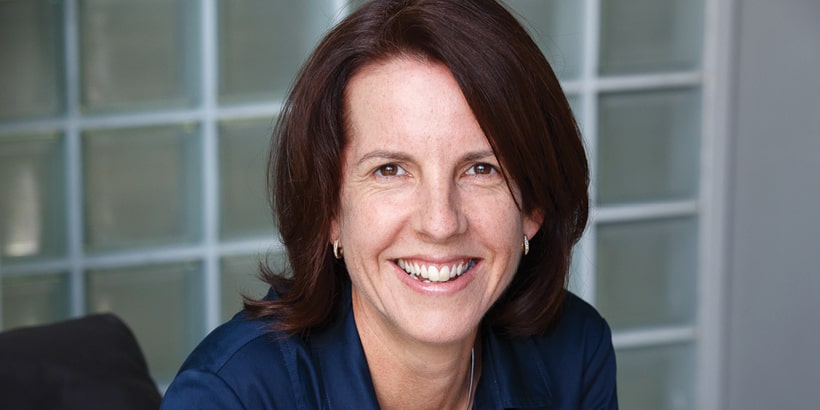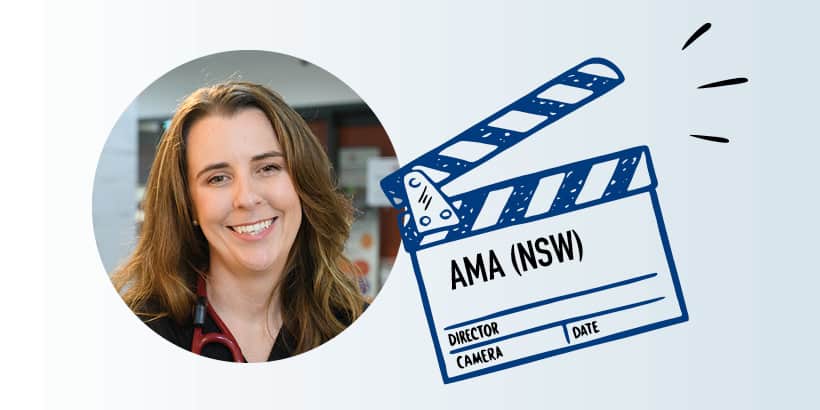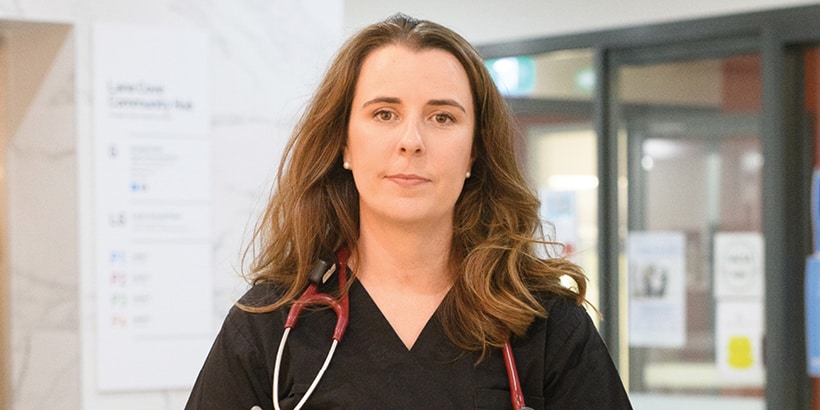
Why doctors still matter
May 13, 2022
Dr Danielle McMullen in action
May 13, 2022FEATURE
Leadership during a crisis
What does it take to be a leader in what has been the biggest health crisis to confront our health system in 100 years? Dr Danielle McMullen talks about her role in COVID and the unique advantage the AMA has as ‘the voice of the profession.’
WHEN DR DANIELLE MCMULLEN stepped up to the role of President of AMA (NSW) in May of 2020, the number of COVID cases recorded in NSW totalled 3025 – today it’s 2.2million.
Having served as vice president, she already had a seat at the table when the crisis hit. Yet, despite the growing concerns about the spread of the virus and the mounting death toll around the world, it never occurred to her to reconsider taking over as President.
“Looking back, we really did think this was going to be three or six months, maybe a year of disruption, so it was an exciting time to be in medical leadership. Of course, that has remained true – it’s been a huge honour to be there throughout this. But no, I don’t think I predicted this would be the only issue for the next two years.”
As a general practitioner, Dr McMullen was well suited to the media requirements that came with the role, particularly given the constant requests from print and broadcast media for comment on the developing situation.
“That communication direct to the public is one of our key skills as a GP and came in handy throughout COVID. Particularly in the media to convey the importance of public health and the issues with COVID – without terrifying everyone,” she said.
Her GP background was also useful in discussions with other medico-politico representatives.
“Yes, I’m a GP, but I sit at the table with a huge range of different people. [Federal AMA President] Omar and I have worked so closely together for the last couple years and he’s an orthopaedic surgeon. In what other forum do a GP and an orthopod on the other side of the country talk regularly and workshop solutions?
She adds, “The AMA is the voice for all doctors and COVID was a unique opportunity to showcase that. Doctors really did come together, more than we normally do. We were able to speak with a united voice and show that that is what the AMA always does. We tried to find solutions for each of the different craft groups, remembering what our common aim was, and finding solutions that worked for everyone – or at least didn’t make a colleague’s life worse.”
The AMA played a central role in decision-making and was able to influence decisions about COVID-related policies. Dr McMullen said the AMA was particularly influential during the vaccine rollout in NSW, adding that former NSW Premier, Gladys Berejiklian made an effort to champion AMA (NSW)’s concerns and ensure general practice was supported to deliver the vaccine – sometimes elevating the discussion to the Commonwealth.
Dr McMullen also acknowledged Health Minister Brad Hazzard’s willingness to listen to doctors when it came to implementing restrictions during the Delta outbreak to reduce the impact of COVID on the hospital system.
“And we worked very closely with Dr Kerry Chant and helped amplify that medical voice both to the Government and the general public. Generally, NSW has done pretty well in prioritising health leadership, and I think we can take credit for being part of that.”
In terms of what NSW ‘got right’ during COVID, Dr McMullen gives the State top marks for facilitation of communication.
“They had forums like Communities of Practice and the Clinical Councils so NSW Health was getting clinical feedback across a lot of domains. At the leadership level, I have never been afraid to pick up the phone to our Chief Health Officer, and as an organisation we’ve been able to meet with the health minister, and often with the Premier when it was necessary.
She adds that health stakeholders were successful in working together throughout the crisis.
“We worked well as a team and with the other Colleges and Societies and the private sector. Everyone was able to compromise when necessary and work effectively together. A lot of what sometimes ends up being political just didn’t happen. It was a much better working relationship with stakeholders than is sometimes the case.”
However, the Government’s COVID response wasn’t perfect, Dr McMullen added. Some decisions, such as the easing of restrictions before Christmas, could be considered mistakes in the COVID response because the negative outcomes were predicted and could have been avoided. But others, such as the approach to the Sydney lockdown during Delta, were generally the result of policymakers doing the best they could with the information they had in that moment, she said.
As the curtain comes down on her presidency, will Dr McMullen miss being at the centre of the crisis?
“I’ll miss being in the room where decisions happen. Once I have the time and space to look back and reflect on this in decades to come it will certainly be a ‘wow, remember that time, I got to be in a leadership role in the middle of the biggest health crisis that we will possibly face for the rest of our lives.’ It has been such an incredible opportunity.”

